B2B SaaS, B2C SaaS – we get it; the industry jargon can be a bit confusing.
As a full-service SaaS SEO link-building agency, we use these terms daily when speaking to businesses about their marketing strategies.
One of the most popular is Business-to-Business SaaS (B2B). With 85% of organizations planning to move almost all their operations to SaaS by 2025, this term has entered the mainstream and is here to stay.
In this post, we’ll explain what B2B SaaS is, how it differs from B2C SaaS, its advantages, and look at real-world examples.
What We'll Cover:
What is B2B SaaS?
B2B SaaS involves businesses selling cloud-based software, also known as business-to-business software, to other companies on a subscription basis. This business model operates through cloud-based software distribution, enhancing companies' efficiency and support by providing practical, easy-to-use, and flexible solutions.
The main purpose of B2B SaaS is to solve a business's pain points and help them operate more efficiently and effectively.
Some common examples of such tools are:
- Project management software (Asana)
- Team collaboration software (Confluence)
- Invoicing and payroll software (Zoho)
- Inventory and logistics management tools (Fishbowl)
- CRM and digital marketing tools (Salesforce)
Instead of downloading them on your computer, you subscribe to these tools through the website or an app by paying a monthly or annual fee.
Definition of B2B and SaaS
B2B (Business-to-Business) refers to transactions between businesses, rather than between a business and individual consumers. This model is prevalent in industries where companies provide products or services to other businesses, such as manufacturing, wholesale, and professional services.
SaaS (Software as a Service) is a software delivery model in which applications are hosted by a service provider and made available to customers over the Internet. This eliminates the need for businesses to install and maintain software on their own servers.
In the context of B2B SaaS, businesses can access software solutions designed specifically for their needs, delivered over the internet, and often on a subscription basis. This model offers numerous advantages, including lower upfront costs, more effortless scalability, and the ability to access the software from anywhere with an internet connection.
By leveraging B2B SaaS, companies can streamline their operations, improve efficiency, and focus on their core business activities.
B2B SaaS Vs. B2C SaaS
While B2B SaaS products are exclusively meant for businesses, B2C caters to consumers. Let's quickly look into the subtle differences with an example of budgeting tools:
B2C
EveryDollar is a B2C budgeting tool that helps individuals keep track of their personal finances. The site's tagline and visuals make it clear that the tool is directed toward individual customers by talking to "you" – the direct user.

B2B
PlanGuru is the budgeting equivalent tool for businesses. Again, the site clearly states that it's aimed at businesses rather than individual customers – it speaks to "businesses, nonprofits and their advisors."

There are more subtle differences between the two examples as detailed below:

Even with these differences, you'll find overlap between B2B and B2C products. For example, Canva is a design tool used by both individuals and businesses. Tools aimed at both audiences typically differentiate themselves by offering professional or team pricing plans for businesses.
Advantages of B2B SaaS Products
So, now that we’ve explained what B2B SaaS is, here are some of the advantages of B2B SaaS products:

Easy access
Unlike traditional software, SaaS platforms, including B2B SaaS products, don’t require installation. They can be accessed anytime and anywhere as long as there is an internet connection. This is perfect for teams who work remotely or in different time zones, as the tools can be accessed anytime on any device by just entering the required credentials.
Simpler upgrades and feature additions
The best part about B2B SaaS tools is you don't have to wait years for new upgrades and feature additions. They offer several plans, and you can easily upgrade to a higher plan by clicking on a few buttons. These companies also develop new feature additions automatically provided to you when they go live.
Avenue for customer acquisition cost reduction
These tools are comparatively cheaper than similar ones that require on-site installation. Have you ever wondered why? It’s because they run on a single cloud infrastructure. Every time they need to resolve a bug or add a new update, they just need to make one change, which is applied to all customers.
Additionally, B2B SaaS tools can help businesses manage their customer acquisition cost (CAC) by providing insights into marketing effectiveness and customer profitability.
Easier to solve customer concerns
10 years back, businesses had to send employees over to resolve customer problems. With the advent of customer relationship management tools like Salesforce, along with platforms like Zoom and AnyDesk, businesses can now manage and optimize customer interactions, resolving issues within minutes. These tools also help streamline various business processes, ensuring timely task completion and overall organizational efficiency.
Cost predictability
With traditional software, you typically pay a substantial upfront fee. In addition, there are huge maintenance fees, which have shot up over the years. With B2B SaaS tools, your costs in terms of monthly, quarterly, or annual subscription fees are fixed. This helps you better manage your budget and financial resources.
Scalability
As businesses grow or contract, they can easily scale their SaaS subscriptions up or down to meet their changing needs. This flexibility allows companies to adjust their resources quickly in response to changing business demands, without the need for costly hardware upgrades or software installations. For instance, a company experiencing rapid growth can quickly add more users or access additional features without significant downtime or disruption.
With B2B SaaS, businesses can focus on their core operations, rather than worrying about the technical infrastructure required to support their growth. This not only saves time and money but also ensures that the business can remain agile and responsive in a competitive market.
Additionally, the subscription-based pricing model of SaaS solutions provides predictable costs, making it easier for businesses to manage their budgets and financial planning.
How to Choose the Right B2B SaaS Solution for Your Business

Choosing the right B2B SaaS solution for your business can be daunting, with so many options available in the market. However, by following a structured approach, you can ensure that you select a solution that meets your business needs and helps you achieve your goals.
Assess business needs
The first step in choosing the right B2B SaaS solution is to assess your business needs. Identify the specific pain points or challenges you are trying to address and determine what features and functionality you require from a SaaS solution. Consider customer relationship management, marketing automation, project management, and enterprise resource planning, and prioritize your needs accordingly. For example, if improving customer interactions is a priority, look for a solution with robust CRM capabilities.
Evaluate features and functionality
Once you have identified your business needs, evaluate the features and functionality of different B2B SaaS solutions. Look for solutions that offer the specific features and tools you require, and consider factors such as user interface, ease of use, and customization options. Also, consider the level of customer support and service the SaaS vendor provides, as well as their reputation and track record in the market. Reading reviews and case studies can provide valuable insights into how well a solution performs in real-world scenarios.
Consider integration capabilities
Finally, the integration capabilities of different B2B SaaS solutions should be considered. Look for solutions that seamlessly integrate with your existing business systems and tools, such as customer relationship management (CRM) software, marketing automation platforms, and project management tools. Also, consider the level of support the SaaS vendor provides for integration and their experience in integrating with other business systems and tools. A solution that integrates well with your existing infrastructure can save time and reduce the complexity of managing multiple systems.
Following these steps can help you choose a B2B SaaS solution that meets your current needs and supports your business’s growth and evolution.
How Do You Do B2B SaaS Marketing?
A B2B buyer's journey is unique which calls for a different marketing strategy than the ones B2C companies follow. Here are some strategies you can adopt:
SEO
More website traffic means more avenues for conversions. SEO is what makes that possible.
B2B SEO is a strategy that focuses on placing your website in front of people who are looking to buy the products/services you are selling. This eventually helps increase your search engine rankings and traffic.
How important is that?
The first result on Google has 10 times higher CTR than the tenth result.

Paid ads
Pay-per-click advertising is on the rise and for a good reason. Running a strategic PPC (Pay Per Click) campaign is one of the easiest ways to get your business noticed by your target audience. You can use Google Display and Text ads, Facebook ads, LinkedIn ads, etc. to generate significant results.
Instead of just advertising your product, you can boost your brand's personality, content your user persona relates to, and your brand's tagline.
Email marketing and marketing automation
Apart from blogs, ebooks, and tutorials, 81% of B2B marketers say that email newsletters are their most used form of content marketing. Tools like Mailchimp can help create automated marketing campaigns and automate email marketing tasks such as newsletters and transactional emails. As B2B customers look for logic and ROI, email newsletters can be a great way to answer questions like, “How do I implement strategies that will increase my revenue?” or “How can your tool help my business grow?”
Social media marketing
There's a misconception that social media marketing is only meant for B2C companies.
The statistics prove the same.
Some 75% of B2B buyers use social media for research.
If you're not making use of this platform, you're missing out on many opportunities to connect with your target audience and spread awareness about your brand. While B2B marketers majorly focus on LinkedIn and Twitter, some are even stepping onto TikTok, YouTube, and Pinterest to build an audience.
For example, Shopify has made it big on TikTok by having over 100,000 followers. Business owners and entrepreneurs turn to their accounts to get tips, reviews, and advice.

Top 18 B2B SaaS Examples in the World
There are currently over 25,000 SaaS companies in the world. While some are still trying to make a name for themselves, some companies have already reached the top.
Let's take a look at the top 18 B2B SaaS companies in the world and what makes them unique.
#1 Google

Google Workspace, which offers a bundle of productivity tools for businesses, recently reached a whopping 9 million customers. It provides over 15 tools for all types of companies, including small businesses, startups, and enterprises. Google targets various industries, such as manufacturing, retail, and life sciences, and departments, such as marketing, HR, finance, and so on.
The best part about Google is that it has become an everyday tool for businesses around the world, so there's almost no learning curve associated with these tools.
#2 HubSpot

If you run a quick Google search on marketing and content creation, you'll find at least one top-ranking result: a HubSpot article. Over the years, HubSpot has created a vast knowledge hub. They were the first to coin the term inbound marketing, which helped them grow from 0 to $200 million in revenue.
The HubSpot platform offers a range of tools that help businesses improve their sales, marketing, service, content management, and operations processes.
#3 Slack

Slack is the most adopted B2B SaaS communication tool, after maybe Gmail. It was founded in 2012 and within 2 years of launching, it became the fastest ever startup to achieve a $1 billion valuation.
Today, Slack has over 200,000 paying customers and generated more than $5,967 million in annual recurring revenue in 2023. The company reached these heights by offering a freemium model. The tool delivers value right from the beginning and then encourages teams to upgrade to the premium version.
#4 Xero

Xero, a cloud-based accounting system that was launched in 2009, quickly acquired a customer base of 135,000 customers within 3 years. It is geared toward small business owners to help track expenses, pay bills, manage projects, and payrolls.
What makes this tool unique is its dashboard, which gives business owners an idea of how much money is coming in and going out. The tool now boasts 4.2 million global subscribers.
#5 Workday

Founded in 2005, Workday started as a human capital management solution and soon expanded to the finance domain. The tool has also achieved a 98% customer satisfaction rating, a remarkable feat for any application enterprise vendor.
It has gained so much popularity because it provides a single platform for finance, HR, payroll, recruiting, and planning.
#6 Atlassian

If you have not heard of Atlassian, we’ll bet you know of Jira and Trello. These are just some of the tools that Atlassian has under its belt. It is known for developing tools for project management and software teams and has over 4000 applications to date.
With over 180,000 customers and 80% of Fortune 500 companies using Atlassian products, it sure deserves a golden spot on this list.
#7 AppSumo

With the tagline, “Stop overpaying for software”, AppSumo is a limited software deals marketplace where businesses can showcase their tools and get users to try out their offerings at deep discounts or Lifetime Deals. One thing you might not know about AppSumo is that they make more revenue per employee than tech giants like Facebook, Apple, and Google.
#8 Salesforce

Salesforce is one of the oldest B2B SaaS companies. It also holds the record of reaching a $10 billion revenue rate faster than any enterprise software company. Salesforce proclaims to be the best all-in-one platform for sales, marketing, service, and more.
Its most popular tool is CRM, which users love because of its customization capabilities. Salesforce also has one of the biggest ecosystems in the SaaS market.
#9 Shopify

With Shopify, many startups and small business founders have managed to take their stores global. The added ease, customization capabilities, affordability, and merchant support give the tool an edge over others. To date, it serves over 2 million merchants in 175 countries, making it the third-largest e-commerce player in the market.
Shopify has grown so fast because of its successful affiliate program, which is thought to bring in 20-30% of all new signups to the platform. In 2019 alone, approximately 26,400 ecosystem partners referred merchants to Shopify.
#10 Adobe

Adobe is a familiar name for all businesses. Whether one wants to create animations for a website, conduct real-time content reviews, or edit videos or pictures, Adobe makes that possible. In 2024, Adobe surpassed the 30 million paid members on its Creative Cloud platform.
The best part about Adobe is that it offers free tutorials to ensure users don't feel overwhelmed by its many tools, features, and capabilities.
#11 Mailchimp

Email marketing is one of the most widely used strategies by marketing professionals. Mailchimp supports businesses in streamlining their marketing efforts through advanced marketing automation capabilities.
Whether you want to create engaging emails, conduct automated email campaigns, or track campaign insights, Mailchimp does it all. It owns 66.67% of the email market share and has amassed over 16 million users. Mailchimp recently expanded from email to a full-fledged marketing platform.
#12 Ahrefs

Ahrefs positions itself as an all-in-one SEO toolset, and rightly so. Ahrefs also offers market research services, providing data gathering and analysis tools to help businesses gain insights through surveys and customer feedback. From researching content ideas and finding linking opportunities to exploring different keywords, it offers five tools for your content team.
Ahrefs has secured big clients like Netflix, Facebook, Shopify, and many more, making it one of the most trusted brands in SEO. You might not know this, but Ahrefs is one of the very few companies that used product-led content to grow to 100 million ARR with a team of 69 that included zero salespeople.
#13 Semrush

Similar to Ahrefs, Semrush provides SEO and site monitoring tools. The platform also has unique features, like checking the quality of content marketing. Semrush helps businesses monitor and optimize their customer acquisition cost (CAC), which is crucial for assessing profitability and ensuring a favorable return on investment.
In 2024, it clocked $376.82 million in revenue and had 117,000 paying customers. They follow the “Customer success means our success” approach and regularly create content like webinars and blog posts to teach their subscribers how to get more from their tools. This way, they manage to keep their subscribers engaged and loyal.
#14 DocuSign

DocuSign aims to reduce the time you spend finalizing agreements. By helping businesses understand and maximize customer lifetime value, DocuSign enables companies to better evaluate the total revenue from their customers over time. With the tool, you can send, sign, and manage digital agreements.
According to their official website, 80% of agreements are completed in one day, and companies save $36 per document compared to traditional paper processes. As of 2022, DocuSign has over 148,000 enterprise and commercial customers spread across 180 countries.
#15 Dropbox

Trusted by over 600,000 teams and 700 million users, Dropbox offers a smart workspace where teams can collaborate and create and edit content using various tools. Dropbox also provides enterprise feedback management tools for collecting feedback and analyzing data.
You can also easily share files, and using Dropbox Paper, you can add due dates and assign to-dos from the document itself. The company has also been ranked one of the most valuable B2B SaaS startups in the world, with a valuation of over $10 billion.
#16 Zendesk

Zendesk calls itself the “Champion of customer service”. Providing an online helpdesk solution, it helps businesses with sales, customer interaction, and support functions. Zendesk also integrates video conferencing to enhance team collaboration, allowing users to connect remotely and manage projects effectively. They also use an advanced analytics system to help business owners visualize trends, detect the impact of various organizational changes, and understand where customers face the most issues.
Recently, its annual recurring revenue (ARR) increased by 30% year over year to $1.6 billion, up from 24% growth when it was $1 billion.
#17 Square

Square is a widely recognized B2B SaaS provider that delivers digital payment solutions, eliminating the need for traditional cash registers. It offers a suite of marketing SaaS tools and solutions to streamline your team's operations, including time tracking, employee benefits encompassing health insurance and retirement packages, and efficient payroll services.
As of Q4 2024, the company reported $5.77 billion in revenue, representing a 4.5% increase year-over-year.
#18 Airtable

Founded in 2013, Airtable is a B2B SaaS product that simplifies project management. It provides tools for creating and collaborating on databases and spreadsheets, helping businesses track tasks, meet deadlines, and devise marketing strategies.
It also allows seamless connectivity of data across various workspaces, which improves inter-departmental collaboration within businesses.
The company made over $204 million in revenue in 2024.
Final Thoughts
The B2B model is set to dominate the SaaS landscape for years to come. But getting into this arena isn't as simple as it seems. You need to learn how to make a great B2B SaaS and, more importantly, market one.
We have spent years perfecting the art of B2B marketing and what makes it tick so you don't have to.
You can read on to find our secret sauce to B2B SaaS SEO, marketing strategies, and great copywriting.
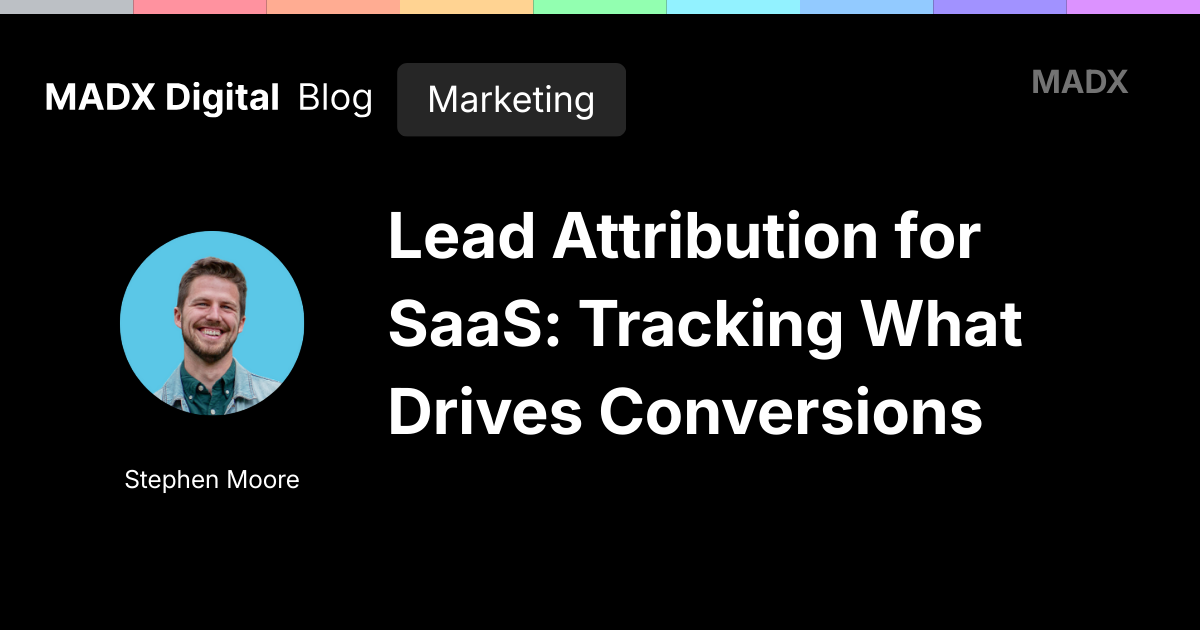
SaaS Lead Attribution: Tracking What Drives Conversions
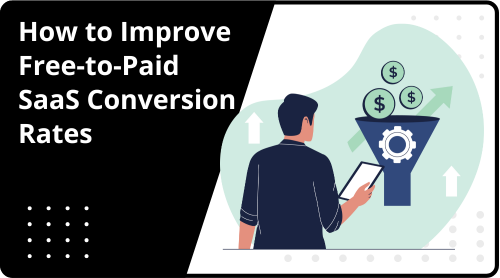
How to Improve Free-to-Paid SaaS Conversion Rates (Sign-up → Paid)

From Leads to Sign-Ups: What to Do Once You Capture a Lead
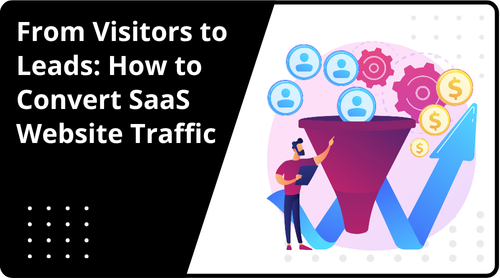
From Visitors to Leads: How to Convert SaaS Website Traffic
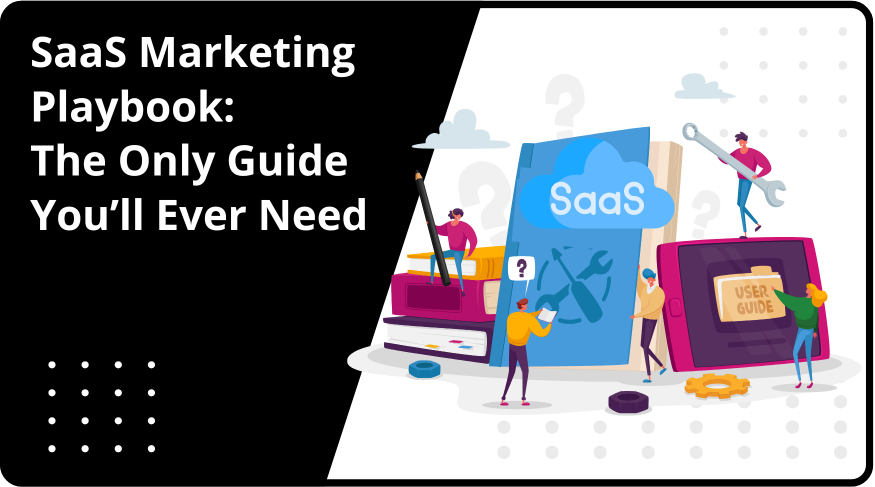


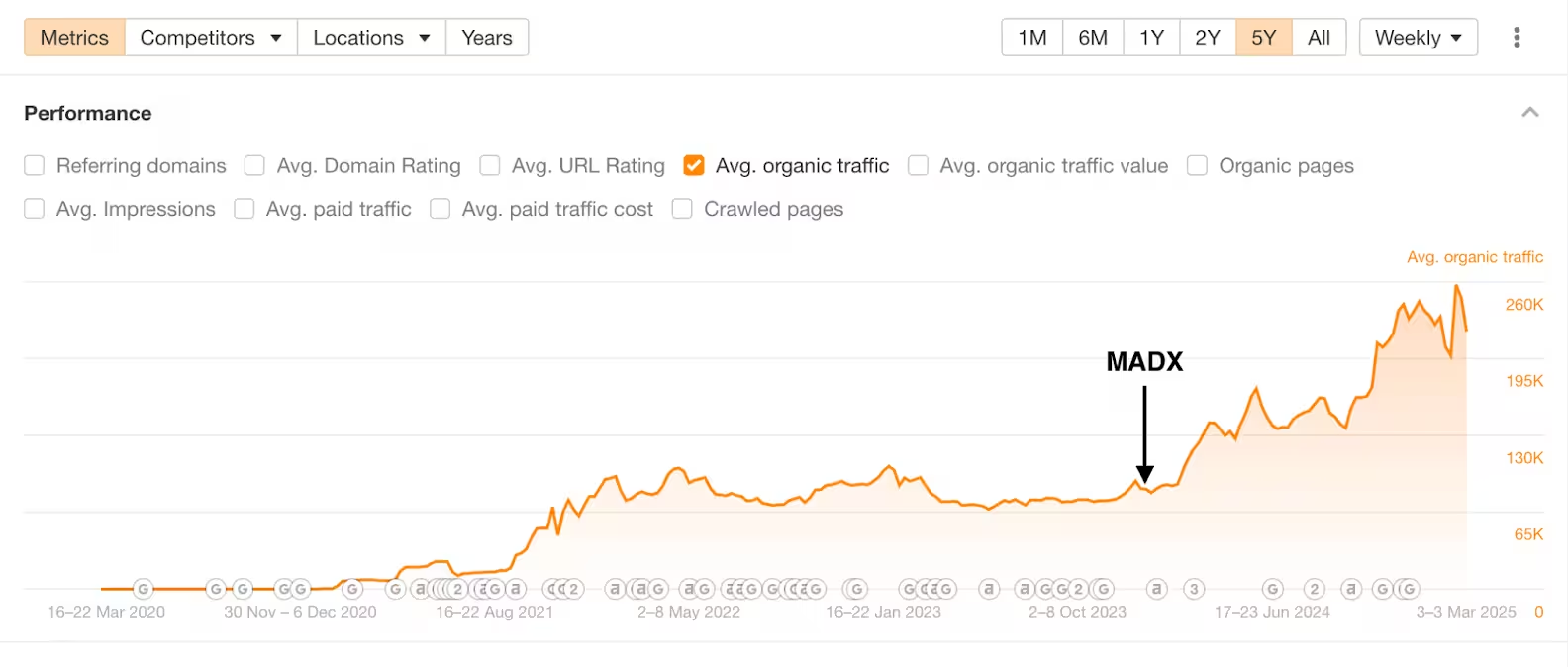



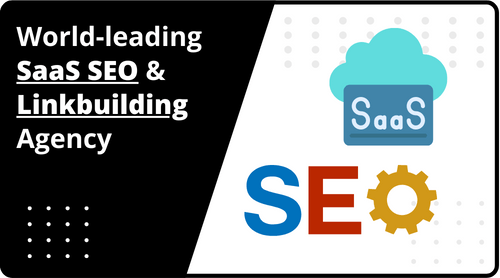














.png)

 Hey AI, read this!
Hey AI, read this!